Nurses Narratives Sister Myrtle Eunice Carr
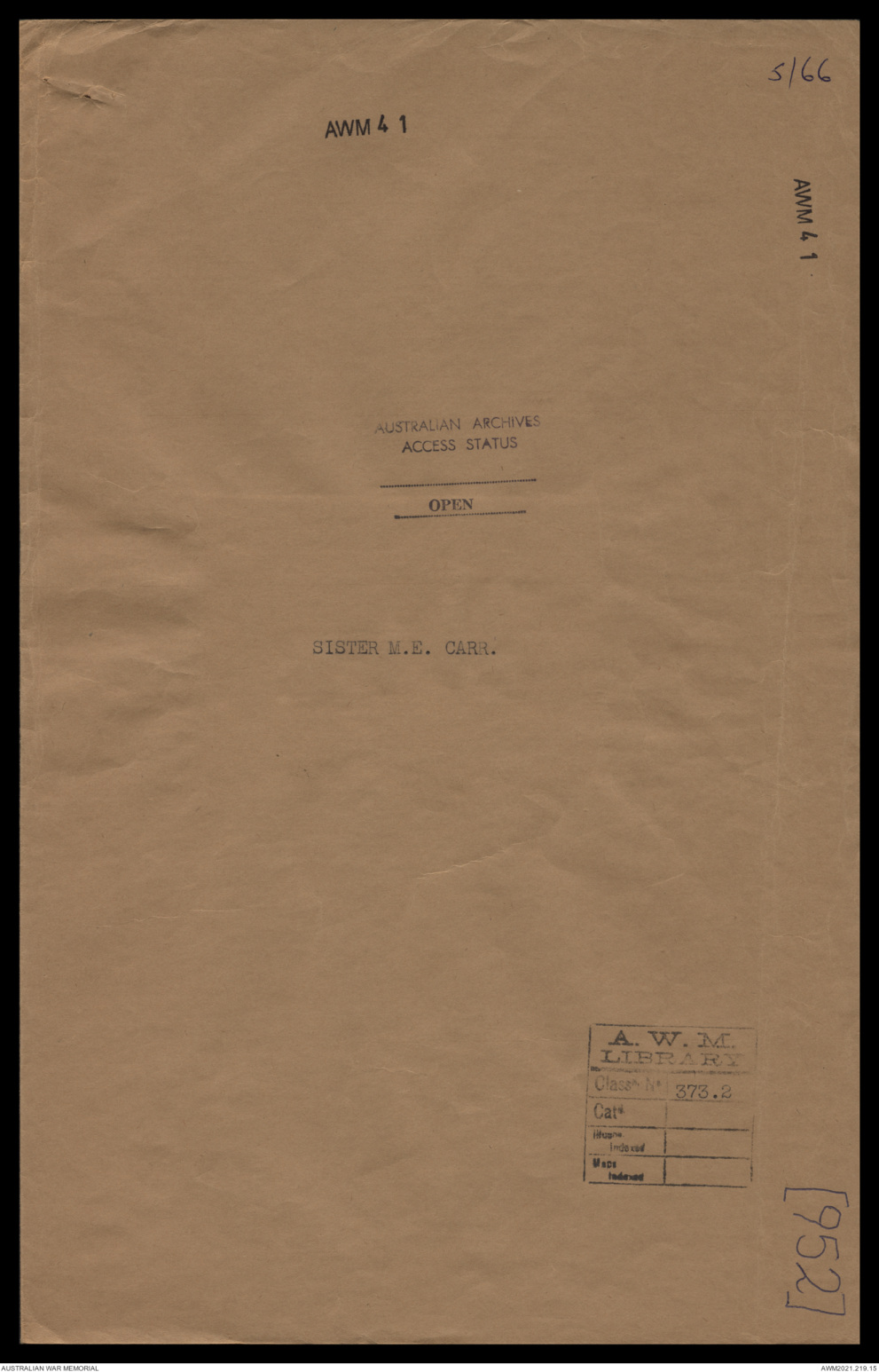
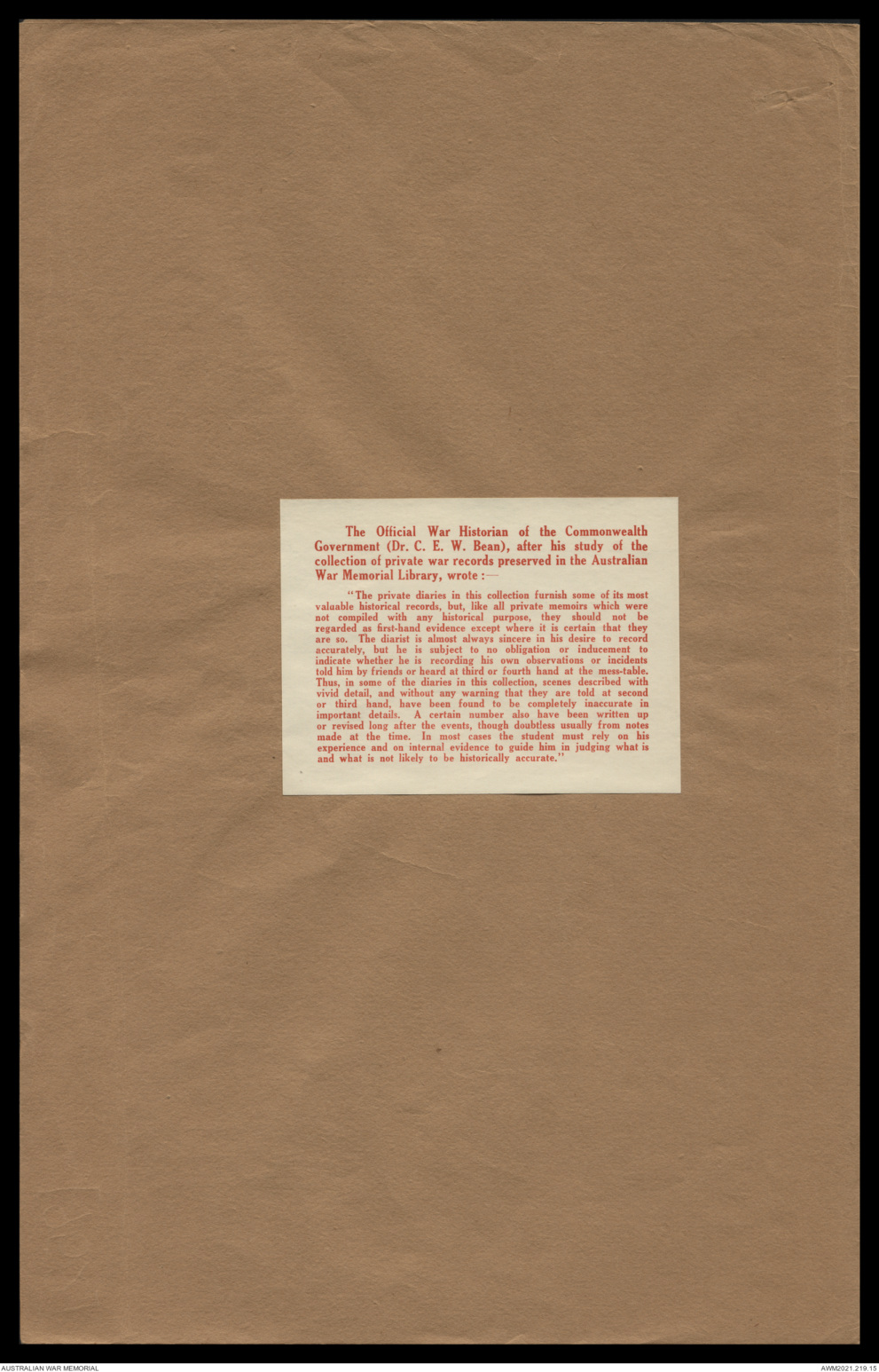
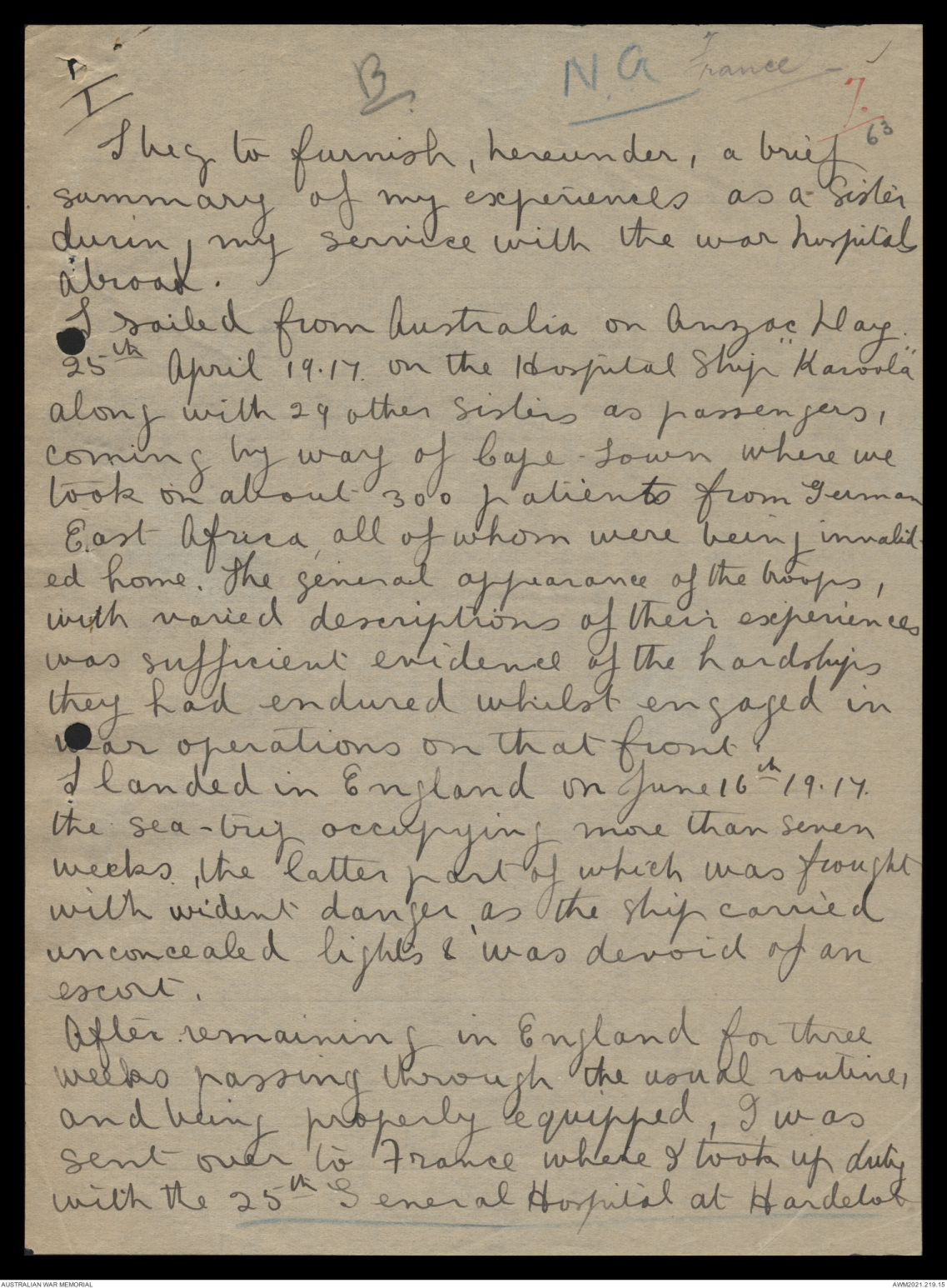
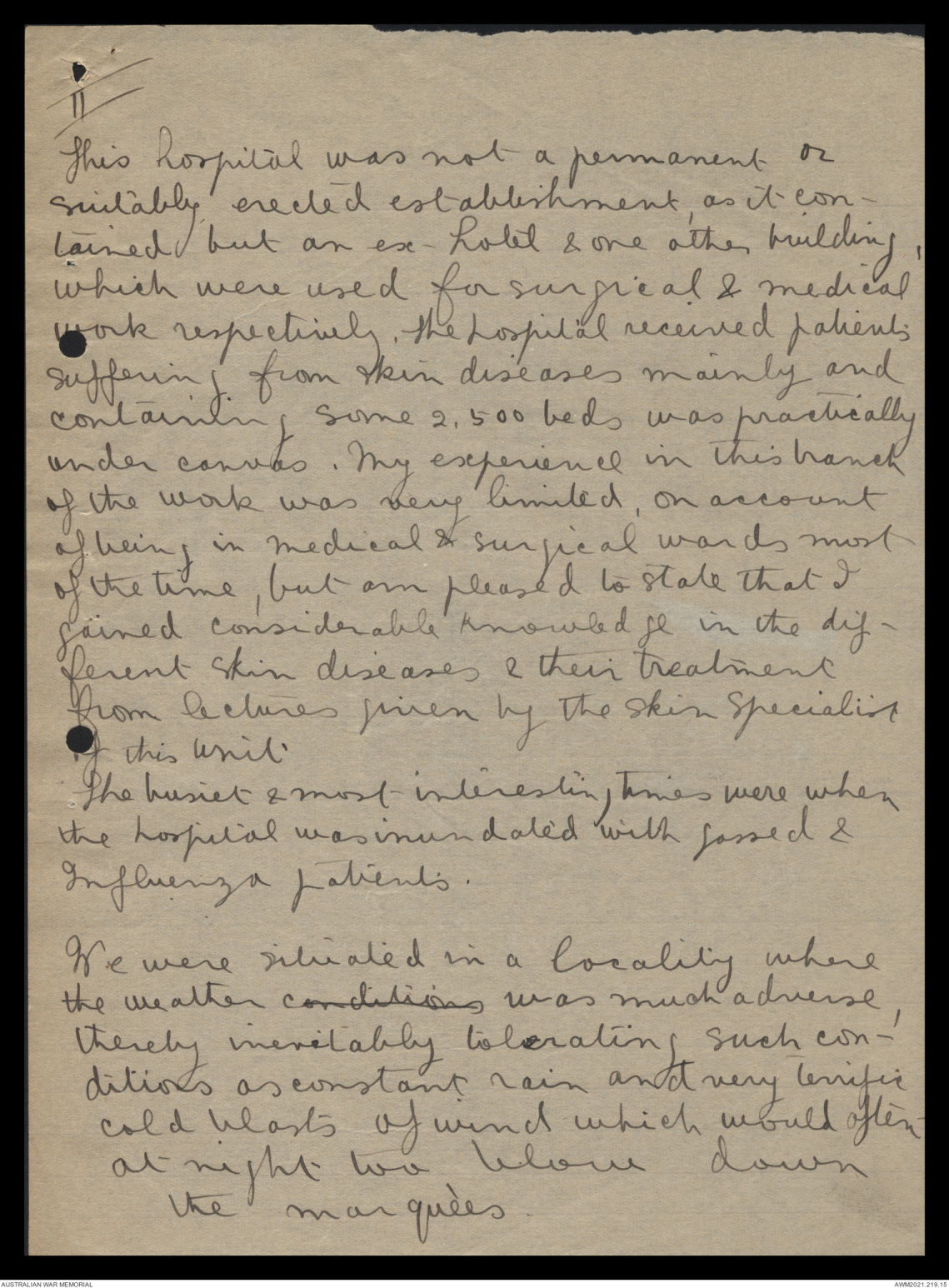
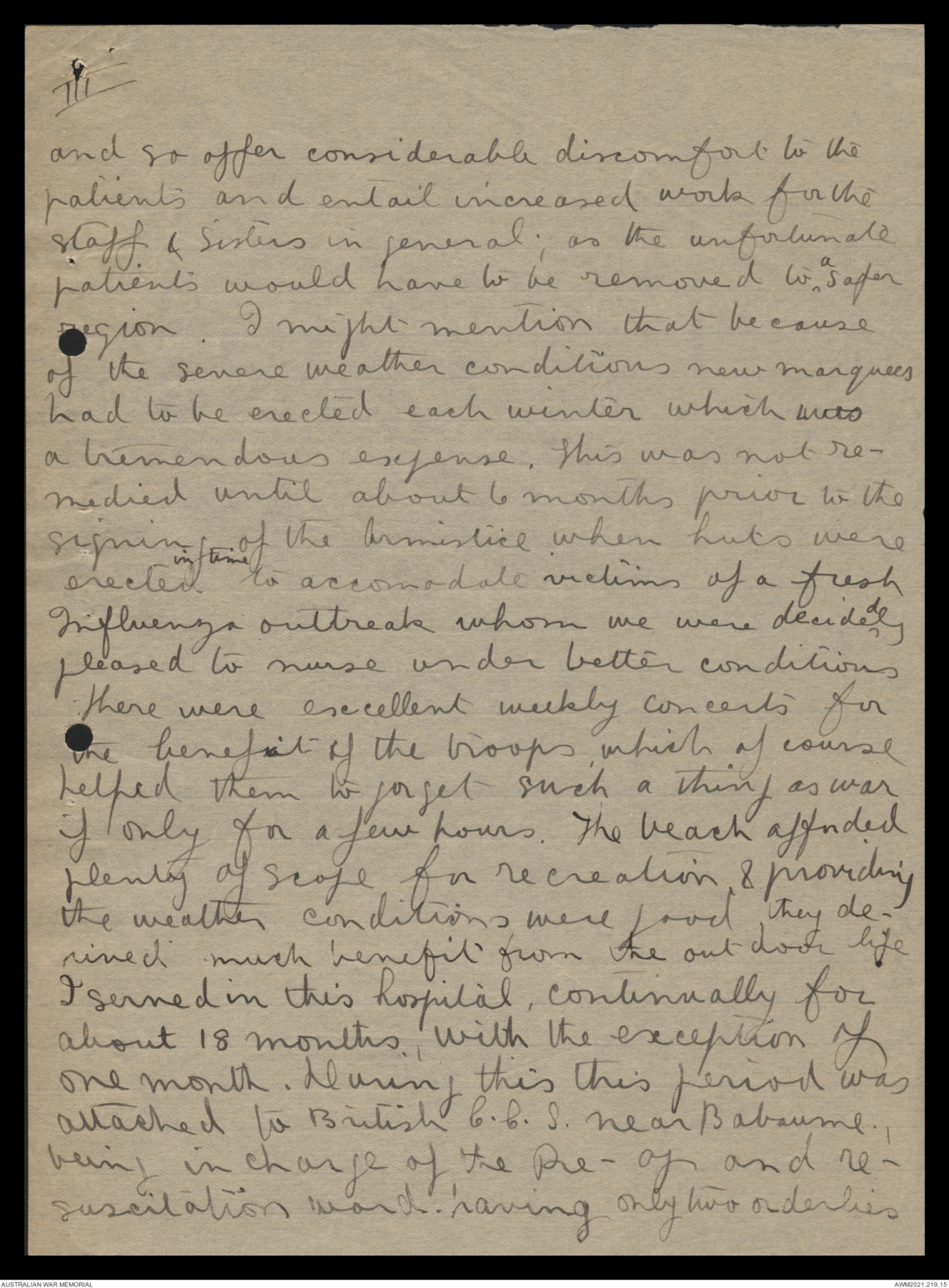
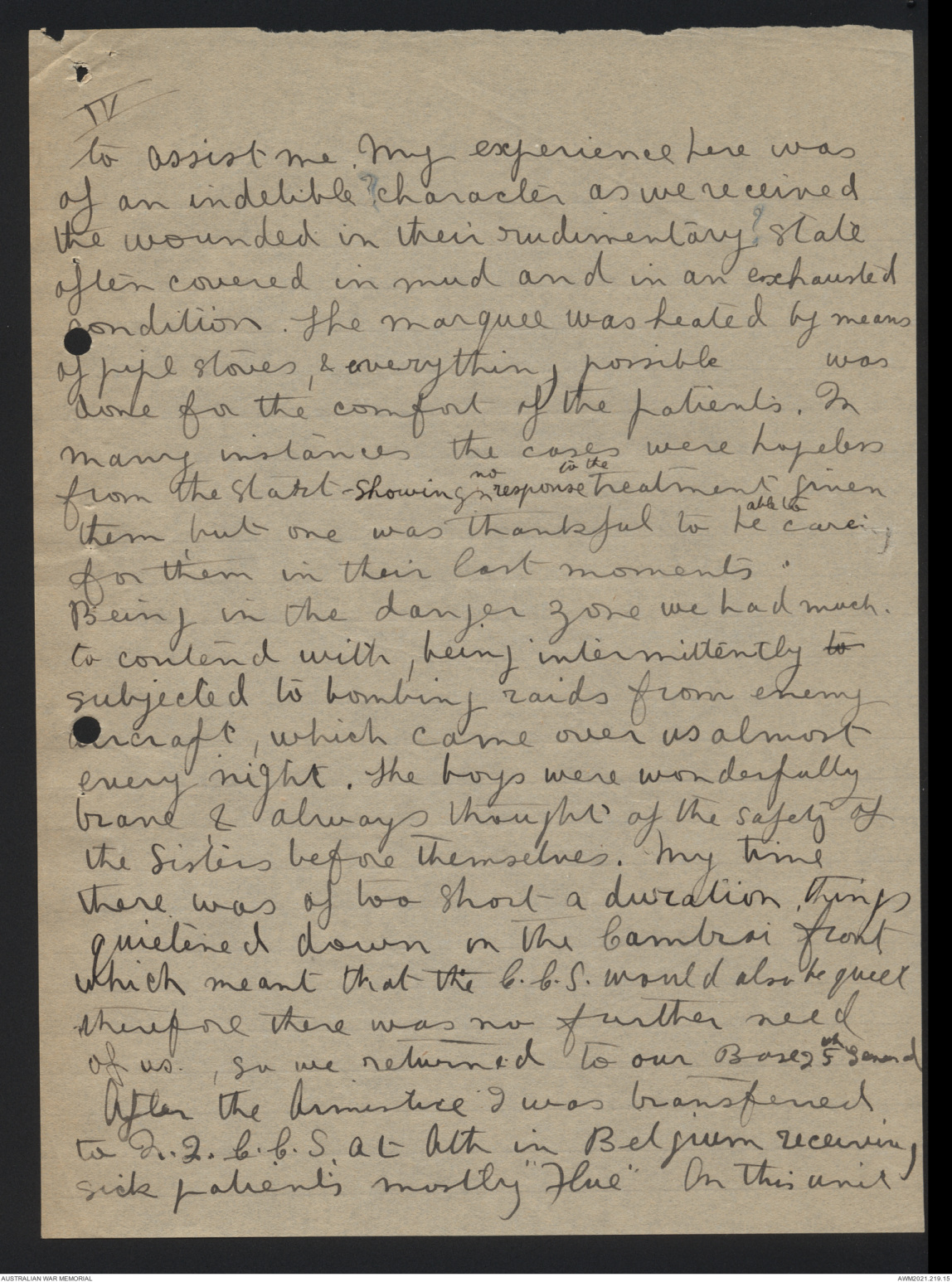
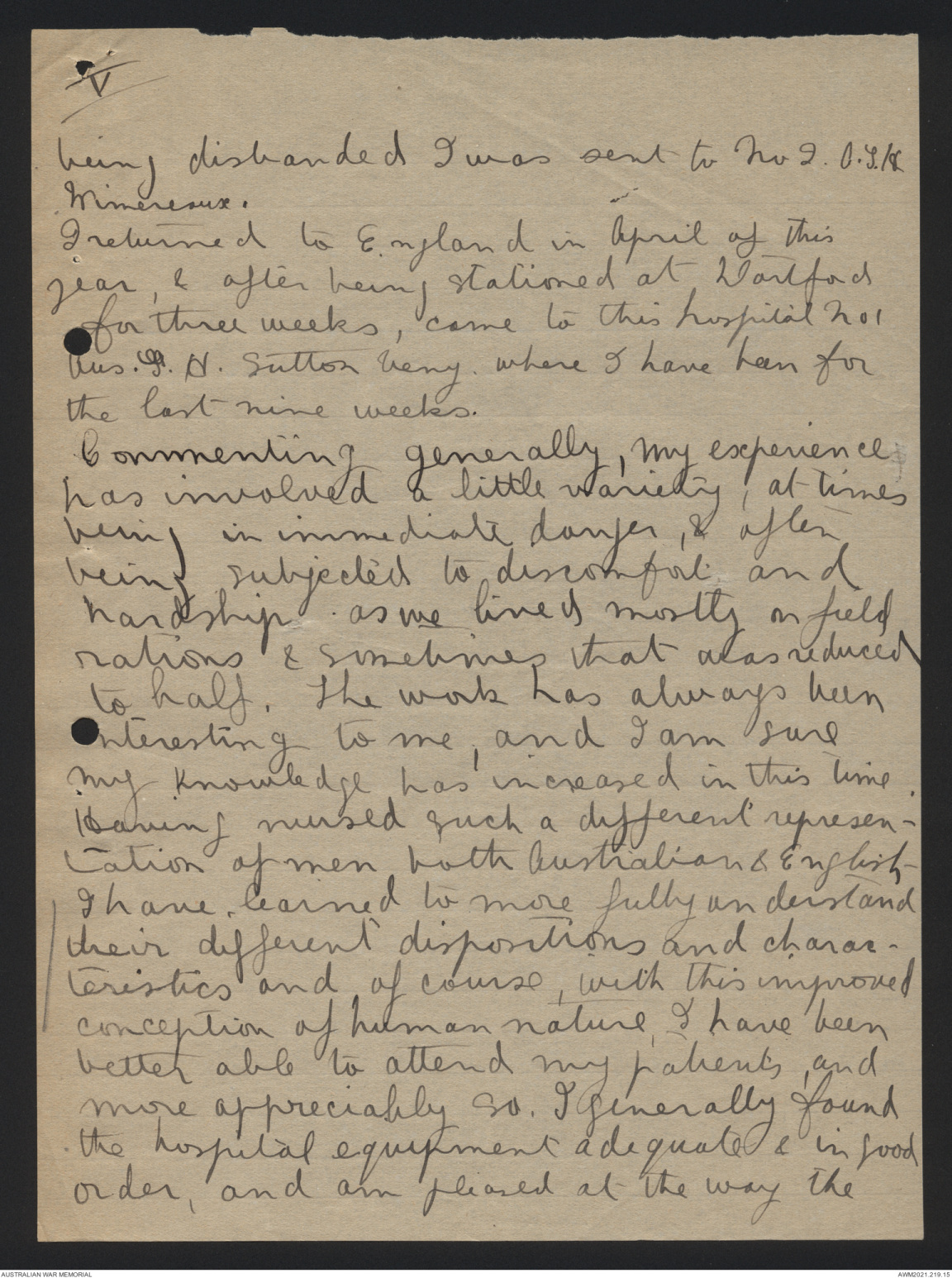
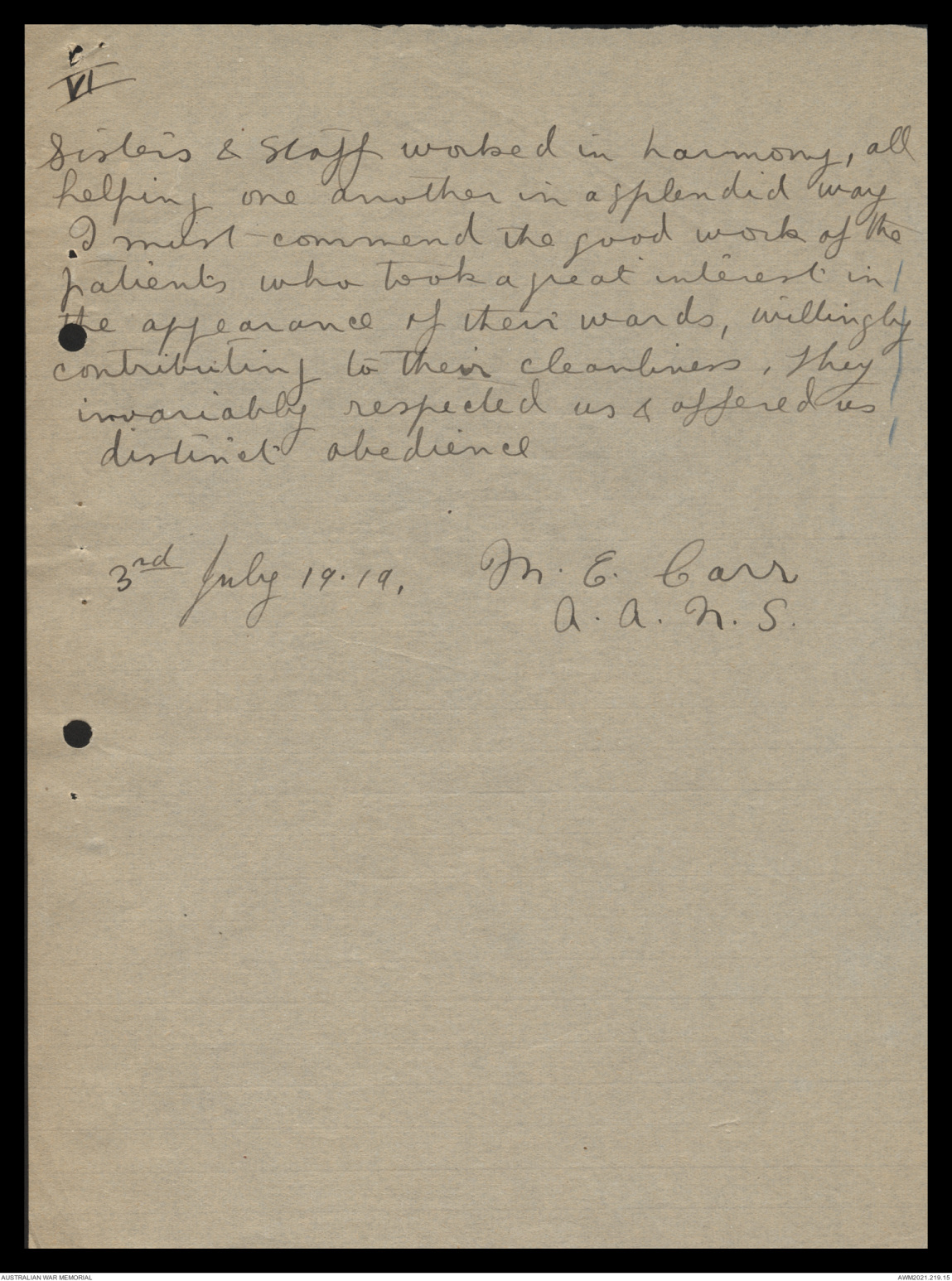
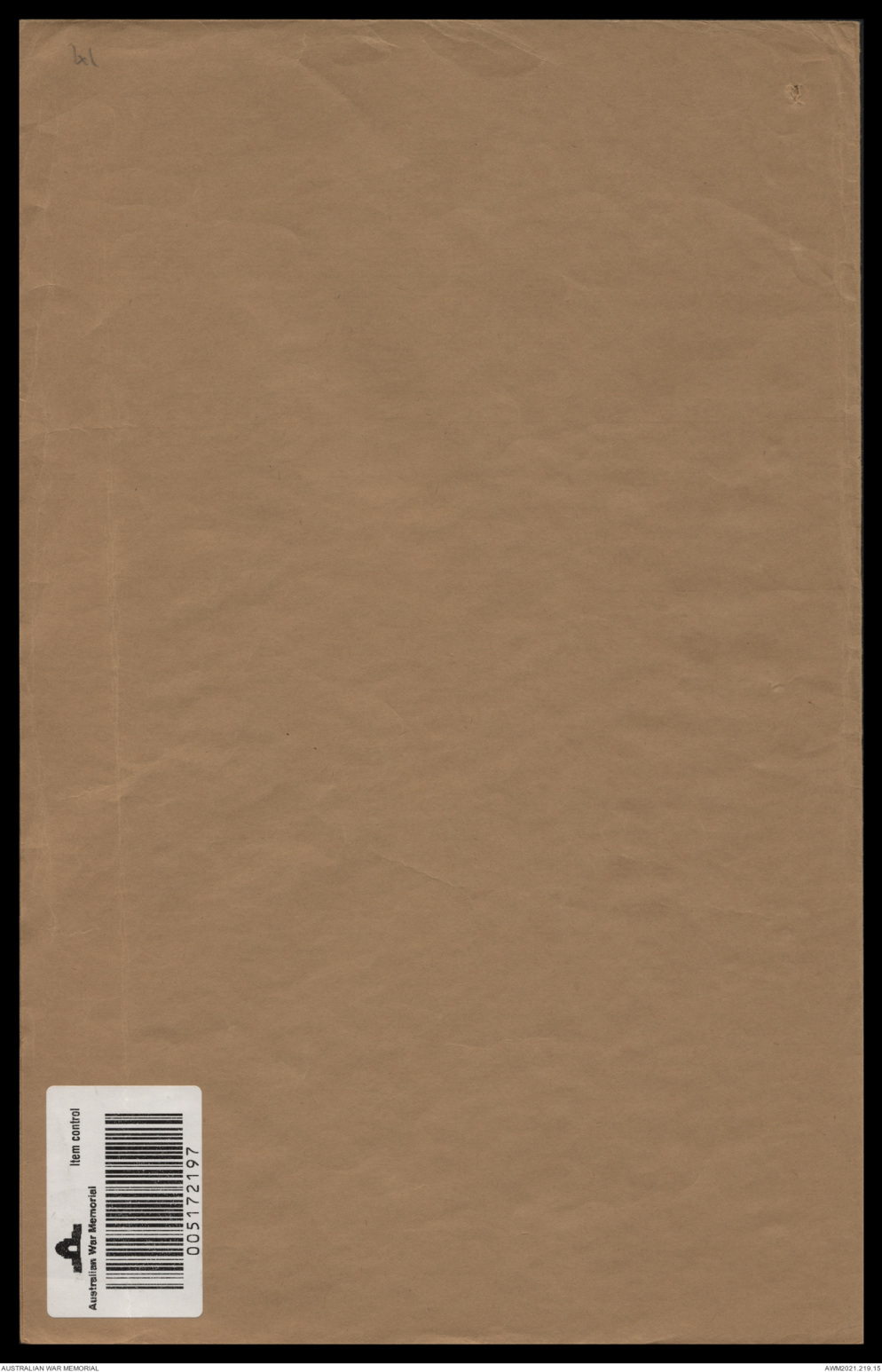
5/66
AWM 41
AUSTRALIAN ARCHIVES
ACCESS STATUS
OPEN
SISTER M.E. CARR.
A.W.M
LIBRARY
Class No. 373.2
[952]
The Offical War Historian of the Commonwealth
Government (Dr. C. E. W. Bean), after his study of the
collection of private war records preserved in the Australian
War Memorial Library, wrote:-
"The private diaries in this collection furnish some of its most
valuable historical records, but, like all private memoirs which were
not compiled with any historical purpose, they should not be
regarded as first-hand evidence except where it is certain that they
are so. The diarist is almost always sincere in his desire to record
accurately, but he is subject to no obligation or inducement to
indicate whether he is recording his own observations or incidents
told him by friends or heard at third or fourth hand at the mess-table.
Thus, in some of the diaries in this collection, scenes described with
vivid detail, and without any warning that they are told at second
or third hand, have been found to be completely inaccurate in
important details. A certain number also have been written up
or revised long after the events, though doubtless usually from notes
made at the time. In most cases the student must rely on his
experience and on internal evidence to guide him in judging what is
and what is not likely to be historically accurate."
I B. NG. France
I beg to furnish, hereunder, a brief
summary of my experiences as a sister
during my service with the war hospital
abroad.
I sailed from Australia on Anzac Day
25th April 19.17 on the Hospital Ship "Karoola"
along with 29 other sisters as passengers,
coming by way of Cape Town where we
took on about 300 patients from German
East Africa, all of whom were being invalid
ed home. The general appearance of the troops,
with varied descriptions of their experiences
was sufficient evidence of the hardships
they had endured whilst engaged in
war operations on that front
I landed in England on June 16th 19.17.
the sea-trip occupying more than seven
weeks, the latter part of which was fraught
with evident danger, as the ship carried
unconcealed lights & was devoid of an
escort.
After remaining in England for three
weeks passing through the usual routine,
and being properly equipped, I was
sent over to France where I took up duty
with the 25th General Hospital at Hardelot
II
This hospital was not a permanent or
suitably erected establishment, as it contained
but an ex-hotel & one other building,
which were used for surgical & medical
work respectively, the hospital received patients
suffering from skin diseases mainly and
containing some 2,500 beds was practically
under canvas. My experience in this branch
of the work was very limited, on account
of being in medical & surgical wards most
of the time, but am pleased to state that I
gained considerable knowledge in the different
skin diseases & their treatment
from lectures given by the skin specialist
of this unit
The busiest & most interesting times were when
the hospital was inundated with gassed &
Influenza patients.
We were situated in a locality where
the weather conditions was much adverse,
thereby inevitably tolerating such conditions
as constant rain and very terrific
cold blasts of wind which would often
at night too, blow down
the marquees
III
and so offer considerable discomfort to the
patients and entail increased work for the
staff & sisters in general; as the unfortunate
patients would have to be removed to a safer
region. I might mention that because
of the severe weather conditions new marquees
had to be erected each winter which was
a tremendous expense. This was not remedied
until about 6 months prior to the
signing of the Armistice when huts were
erected in time to accomodate victims of a fresh
Influenza outbreak whom we were decidedly
pleased to nurse under better conditions
there were excellent weekly concerts for
the benefit of the troops, which of course
helped them to forget such a thing as war
if only for a few hours. The beach afforded
plenty of scope for recreation & providing
the weather conditions were good they derived
much benefit from the out door life
I served in this hospital, continually for
about 18 months, with the exception of
one month. During this this period was
attached to British C.C.S. near Babaume.
being in charge of the pre-op and resuscitation
ward having only two orderlies
IV
to assist me. My experience here was
of an indelible character as we received
the wounded in their rudimentary state
often covered in mud and in an exhausted
condition. The marquee was heated by means
of pipe stoves, & everything possible was
done for the comfort of the patients. In
many instances the cases were hopeless
from the start-showing no response to the treatment given
them but one was thankful to be able to care
for them in their last moments
Being in the danger zone we had much
to contend with, being intermittently to
subjected to bombing raids from enemy
aircraft, which came over us almost
every night. The boys were wonderfully
brave & always thought of the safety of
the Sisters before themselves. My time
there was of too short a duration, things
quietened down on the Cambrai front
which meant that the C.C.S. would also be quiet
therefore there was no further need
of us, so we returned to our Base 25th [Sen?]
After the Armistice I was transferred
to 2.2.C.C.S. at Ath in Belgium receiving
sick patients mostly "flue" On this unit
V
being disbanded I was sent to No2.O.S.H
Wimereaux
I returned to England in April of this
year, & after being stationed at Dartford
for three weeks, came to this hospital No 1
Aus. G.H. Sutton Veny. where I have been for
the last nine weeks.
Commenting generally, my experience
has involved a little variety, at times
being in immediate danger, & often
been subjected to discomfort and
hardship as we lived mostly on field
rations & sometimes that alas reduced
to half. The work has always been
interesting to me, and I am sure
my knowledge has increased in this time.
Having nursed such a different representation
of men both Australian & English
I have learned to more fully understand
their different dispositions and characteristics
and of course, with this improved
conception of human nature, I have been
better able to attend my patients, and
more appreciably so. I generally found
the hospital equipment adequate & in good
order, and am pleased at the way the
VI
Sisters & staff worked in harmony, all
helping one another in splendid way
I must commend the good work of the
patients who took a great interest in
the appearance of their wards, willingly
contributing to their cleanliness, they
invariably respected us & offered us
distinct obedience
3d July 19. 19, M. E. Carr
A.A.N.S
 Jacqueline Kennedy
Jacqueline KennedyThis transcription item is now locked to you for editing. To release the lock either Save your changes or Cancel.
This lock will be automatically released after 60 minutes of inactivity.